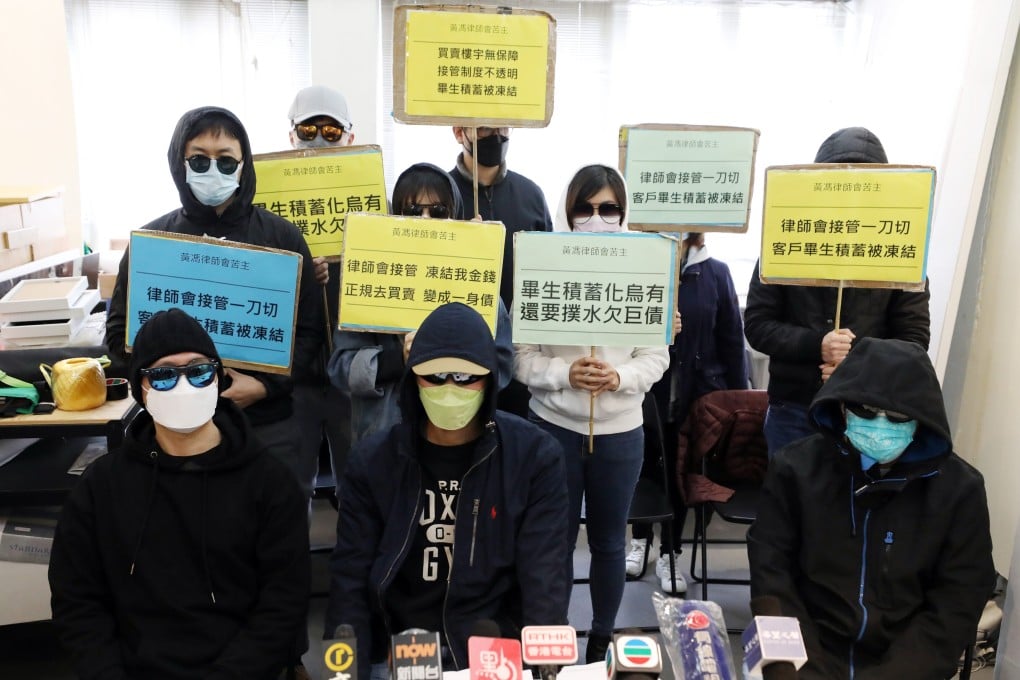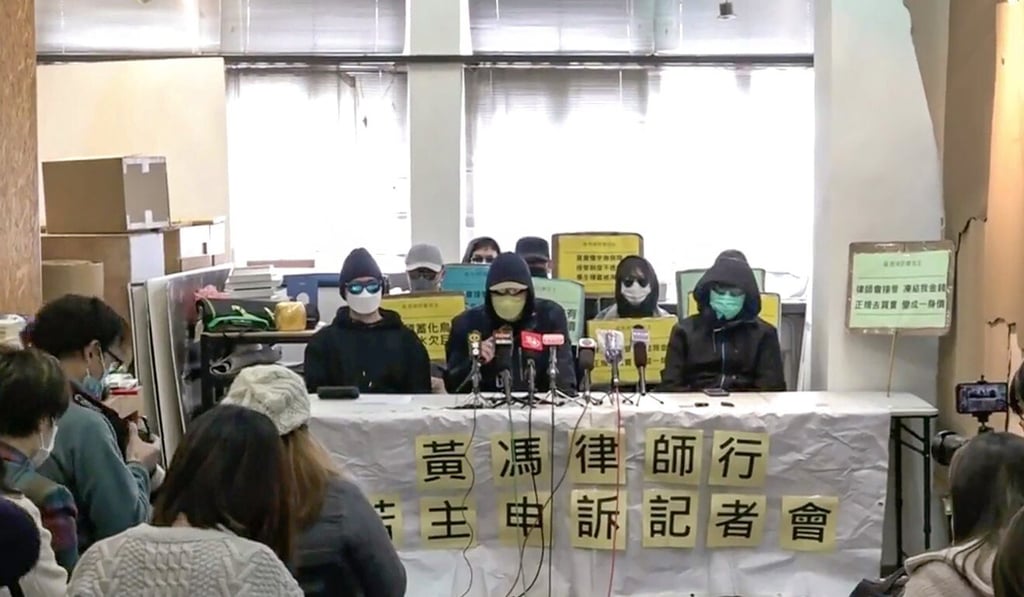Advertisement
Hong Kong families with money trapped in closed law firm’s frozen bank accounts turn to government for low-interest loans
- Wong, Fung & Co, which specialises in second-hand property transactions, was shut down by the city’s Law Society over alleged breaches of fiduciary duty
- But thousands of clients have been left on the hook, as money for pending deals was held in the firm’s accounts
Reading Time:3 minutes
Why you can trust SCMP
3

The victims of a financial scandal that has led to a Hong Kong law firm being shut down and its bank accounts frozen are calling on authorities to offer them interest-free loans so they can meet looming obligations and avoid bankruptcy as they wait to access their funds.
If authorities do not step in, some of the thousands of victims have said, they will lose their life savings.
“I am being forced to file for bankruptcy,” said Chan, a victim in her 30s. “But it’s not my fault. I have done nothing wrong.”
Advertisement
The Law Society last month found Wong, Fung & Co, a law firm specialising in property transactions, had committed serious breaches of fiduciary duty, including siphoning client funds.

Advertisement
According to data from Centaline Property, Wong, Fung & Co was responsible for 4.9 per cent of the city’s second-hand property deals in 2019.
Advertisement
Select Voice
Choose your listening speed
Get through articles 2x faster
1.25x
250 WPM
Slow
Average
Fast
1.25x